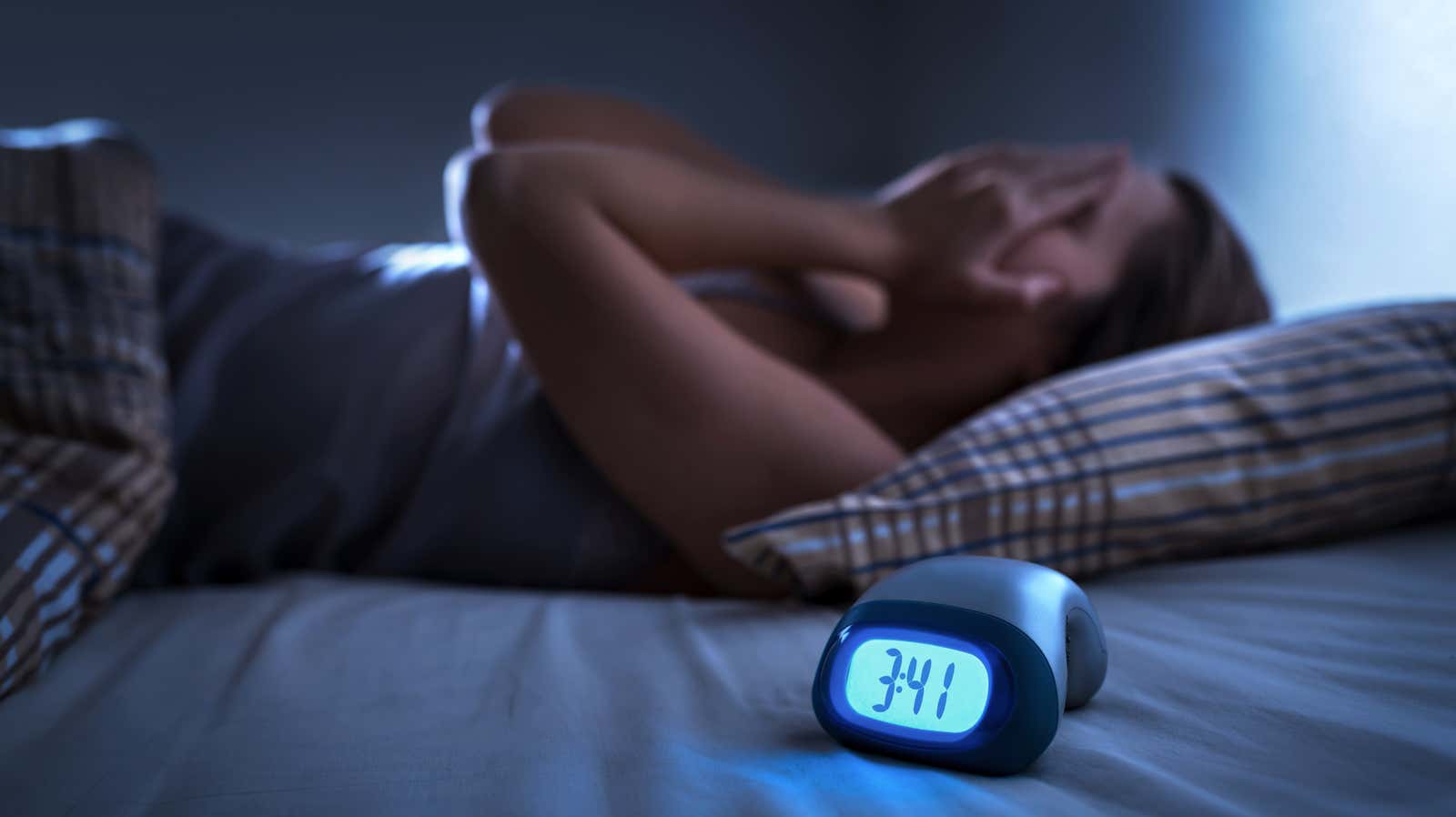How to Fall Asleep After Waking Up

Many people find it difficult to fall asleep. According to the Cleveland Clinic, about 70 million Americans suffer from some form of sleep disorder , and about 100 million people in the United States usually do not get enough sleep. The problem was exacerbated during the pandemic .
We are a tired nation, but even if you don’t have a diagnosable sleep disorder, you are no doubt familiar with the experience of waking up in the middle of the night and struggling to get back to sleep. This is not complete insomnia, but rather a condition that doctors call “insomnia to maintain sleep,” and it definitely comes with its own suffering.
There are several strategies you can try when you have hectic nights and little sleep. Hopefully, one of them – or a combination of them – will make getting back to sleep easier and more carefree.
Don’t get hung up on time
Most likely, you woke up in the middle of the night because something is bothering you . Don’t aggravate your anxiety by watching the clock tick, your chances of feeling refreshed the next day. This will only increase the mental stress of the struggle for rest. Instead, don’t look at the time on your phone (you want to ignore your phone for several reasons, but more on that later). If you have an alarm, turn it so that the time is not visible. You need peace of mind, and thinking about what time it is will not help you find it.
Limit blue light exposure and screen time before bed
While it’s nice to relax before bed just scrolling through Instagram, the blue light emitted from your phone can create a dilemma for the production of melatonin, a hormone that largely controls the human body’s sleep / wake cycle.
As Harvard Medical School explains :
While any light can suppress melatonin secretion, blue light at night makes it stronger. Harvard researchers and their colleagues conducted an experiment comparing the effects of 6.5 hours of exposure to blue light with exposure to green light of comparable brightness. Blue light suppressed melatonin for about twice as long as green light, and shifted circadian rhythms twice as much (3 hours versus 1.5 hours).
To do this, try putting your phone aside for the night an hour before you plan to fall asleep, or at least adjust its settings to darken the screen and limit the emission of blue light during the hours before bed. This way, your brain will have a chance to produce melatonin, which is needed to sleep naturally. Even though we are tied to our devices, it is very important to put your phone or tablet away before bed, and if you don’t, you will most likely find yourself at a disadvantage when you fall asleep and stay awake.
Relax your muscles and mind
Obviously, this is the main conundrum when chasing elusive sleep: you know you need to relax, but the annoyance of waking up in the middle of the night is inherently unsettling. Regardless, you have to relax to get off the ground again.
Try deep breathing exercises , counting exercises , or muscle relaxation, among others. According to Johns Hopkins University , a good option includes “progressive muscle relaxation”, as described below:
Work different muscle groups in your body (eg, arms, legs, torso, face) by contracting the muscles in each group for about three-quarters of the strength for about five seconds before releasing the tension immediately. Avoid any muscles that hurt and try to isolate the muscles as you contract, instead of, for example, straining your pectoral muscles when you focus on your arms. Take slow, deep breaths between muscle groups.
Get up and go to another room and then try to fall asleep again
Many experts recommend the 20 minute rule, that is, if you’ve been aimlessly in bed for 20 minutes, get up, go somewhere in your house and do something soothing.
You can read a book, do crosswords, flip through a magazine, listen to an audiobook or podcast – anything that can tire you out again. Some experts suggest deliberately choosing an activity that you feel bored, as you are more likely to fall asleep if you are more bored than excited.
However, to do this, you need to go to another room at home – while staying in bed, “your brain and body will associate your bed with wakefulness, not with sleep,” according to Luis F. Buenaver, professor in the department of natural sciences. psychiatry and behavioral sciences at Johns Hopkins University.
Don’t drink alcohol before bed.
Drinking alcohol can also negatively affect your chances of getting long sleep. Yes, alcohol is a depressant that slows down your brain activity and makes you feel slow and heavy, but it can have the opposite effect when you actually fall asleep.
As neurologist Bhanu Kolla of the Mayo Clinic told CNN :
When alcohol is metabolized, it forms the stimulating acetaldehyde. Therefore, if you drink too much alcohol right before bed, after about four hours, it turns into an aldehyde, which can disrupt sleep and wake you up.
Using some of them as measures, alone or in tandem with each other, may not immediately keep you awake at night, but over time they can help you create a daily routine that reliably gets you back to sleep before sunset. fits.